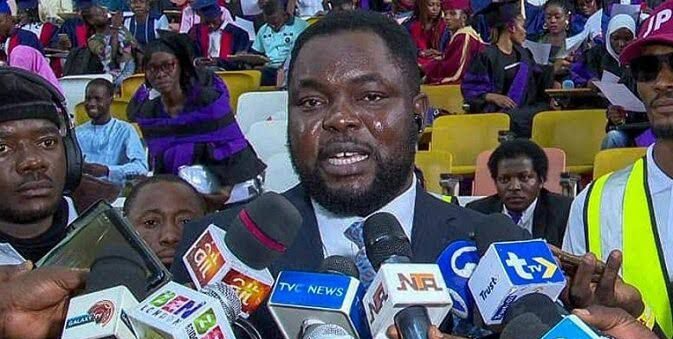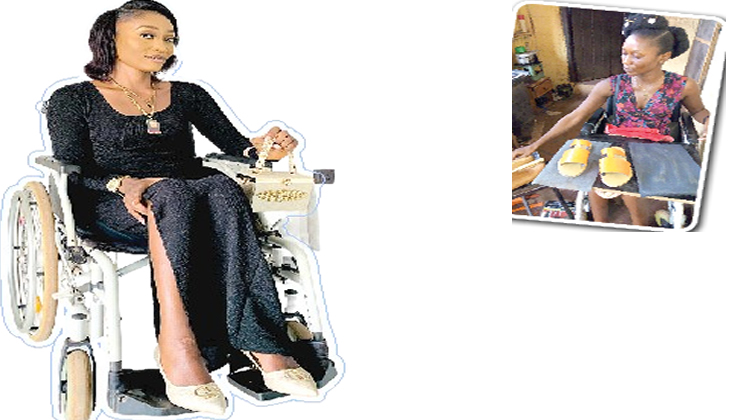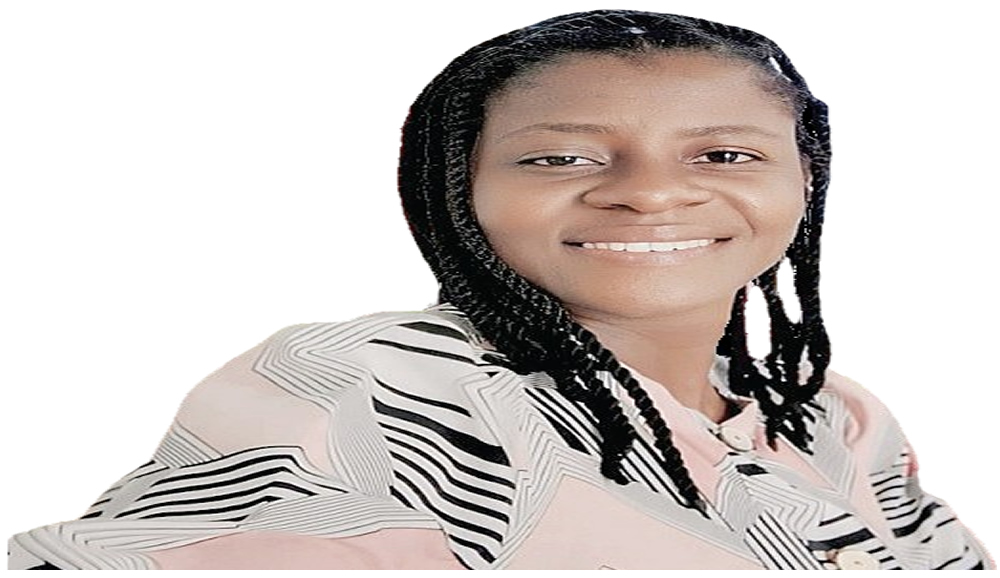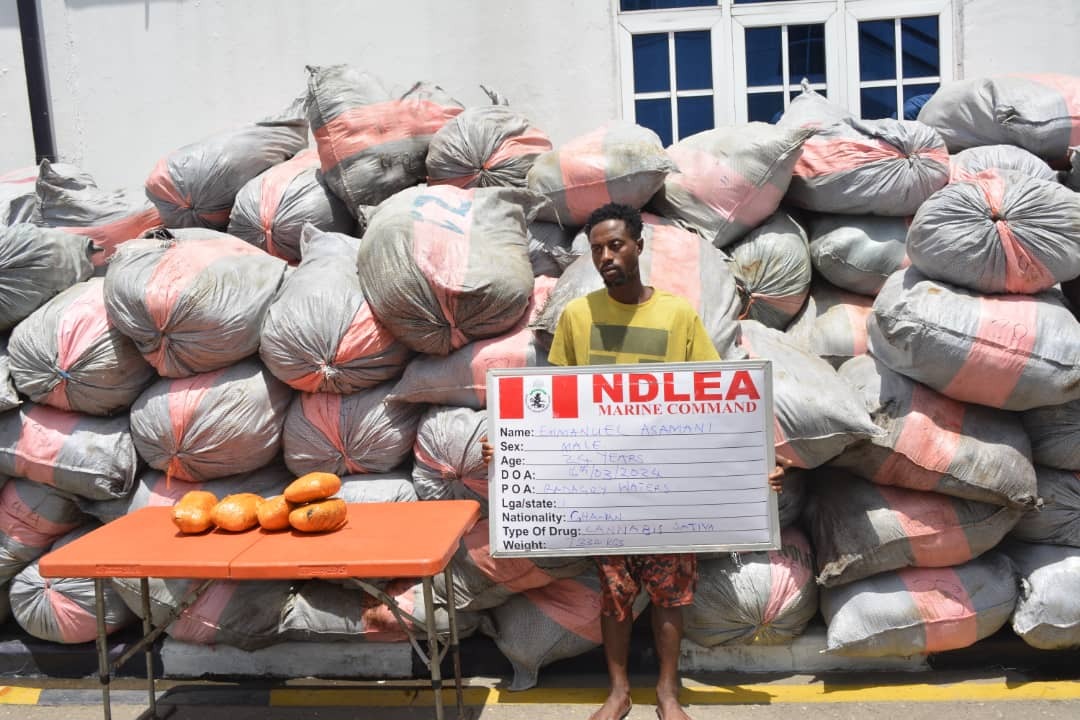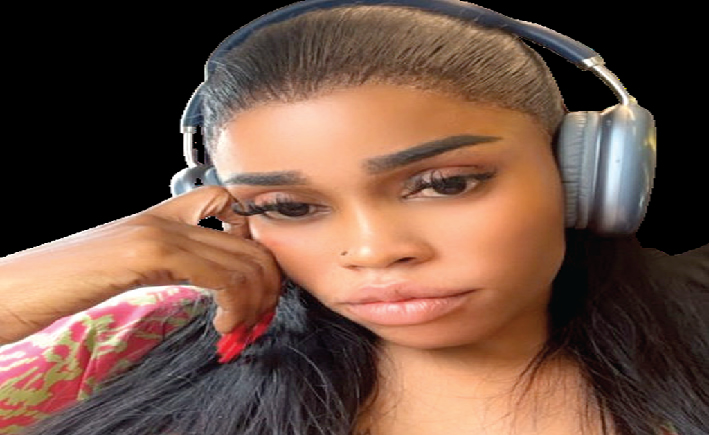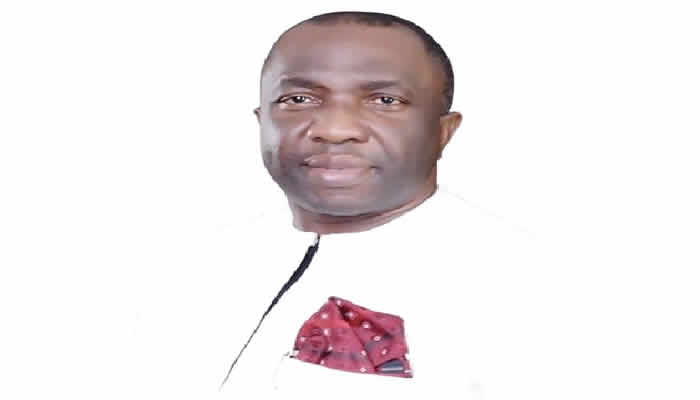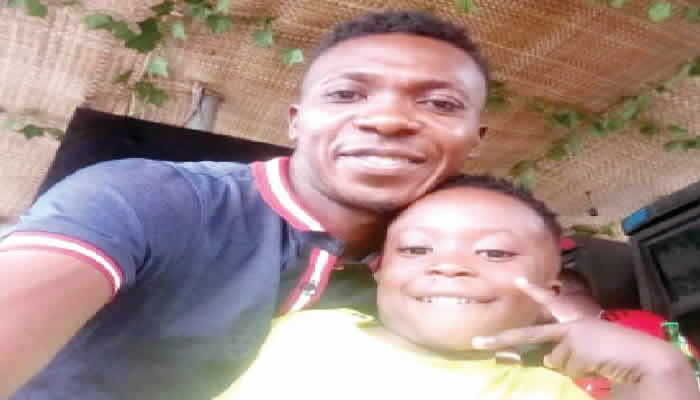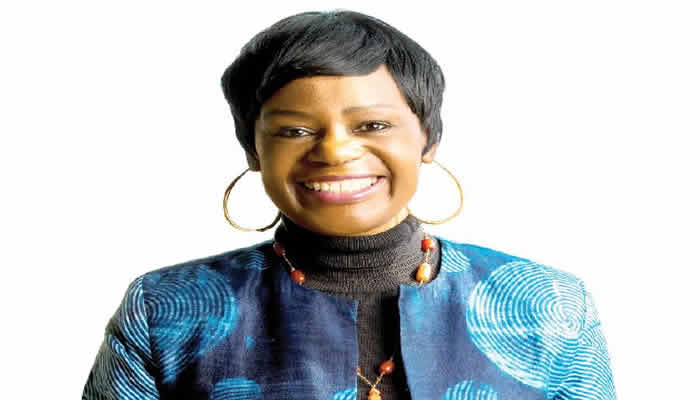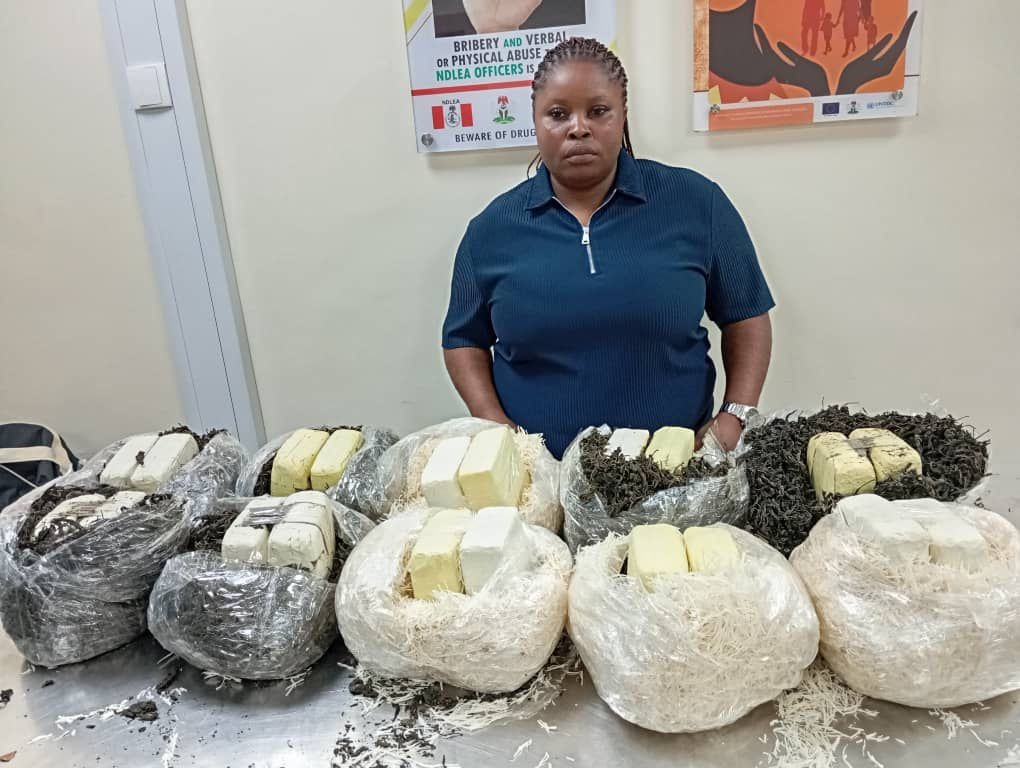National Chairman of the Accord party, Prof. Chris Imumolen, speaks to DANIEL AYANTOYE about his emergence as the leader of the party, the current hardship faced by Nigerians, among other national issues
You were the presidential candidate of the Accord party in the 2023 election, but a Federal High Court in Abuja recently ordered the Independent National Electoral Commission to recognise you as the party’s national chairman. How did it happen?
After the 2023 election, I noticed that there was a lot of homework we needed to do in the party so that we could be better prepared for the election, and also stand out as one of the strong political parties in Nigeria. Usually, you notice that most candidates of political parties like Accord, after running for elective positions, will jettison and go to the so-called bigger parties. But I stayed put because I still have so much to contribute to the party to give it a better political and national outlook.
You know that we had a chairmanship that had spanned for about 16 years, and there was a need for us to rejig the party. So, we set up a caretaker committee to launch the party into convention. There were issues with the convention because the other people went to an unknown location to hold their convention and declared themselves the winner. We were surprised. They even sent us a video where we saw only 17 people at their convention.
It was later we heard that they submitted a report to INEC which was signed by some INEC staff that over 500 voted for them. I am surprised. That was what shocked us and made us go to court. We went to court, and we got an order that INEC should recognise my person as the chairman. We went to court and the court ordered INEC to recognise a person as the chairman.
We paid duly for the convention. So, it is in a bid to restructure the party and stop all these shenanigans and abnormalities in our political party that we are here because we had serious issues when we ran for the last election. We had party leaders who were not patriotic and did not want the party to win. They were only after how they would siphon from the candidates and make money for themselves.
Since the court ordered INEC to recognise you as the national chairman of the party, have you received any notice of recognition from the electoral commission?
We have sent notice to INEC. We keep engaging with them. INEC has its internal procedure, and we are working with them to finalise the procedure. The court order must be respected by every agency in Nigeria. Nobody is bigger than an order that is given by the court.
The court also told the national executives to stop parading themselves as executives. What is the current situation with that?
In the history of political parties, you will observe issues of contempt of court. Some will still keep parading themselves. But we are not bothered because we are on the side of the law. We have not called ourselves the national chairman. We have an order that describes that. So, whatever they are doing is none of our business. What is our business now is to reposition the party and we have started. Just last week, we had a southern stakeholders’ meeting where we called all those who were expelled from the party.
Their system is that anybody who tries to correct abnormalities is expelled immediately. A political party is not a one-man organisation. So, what we did was to call back everybody who has been expelled. We followed the constitution, and we made sure that they were pardoned. We invited them back to the party because we needed to grow the party. Very soon, we will be having the northern stakeholders’ meeting in Abuja. We were in Maiduguri where we supported about 3,000 citizens affected by the flood. Political parties should not only evolve during the election. They should also be engaged in nation building whether they are in power or not.
Some political parties that are not in power will argue that the funding only comes in during the electioneering period. So, it will be difficult to fund such projects. What do you make of that?
Giving to the people is from the heart and not from the hand. Some politicians believe in collecting, and not giving. They even collect what they don’t need. That mentality needs to change. What you have may not be equal to what other people have. But no matter how little it is, you can still give. If we can support 100 and PDP does 5,000 supports, the important thing is that something was done. Show that you care for your people. The widow’s mite can even be more recognised than those that give even far more. It depends on the heart.
Now that you have been declared the chairman of the party, what happens to your presidential ambition? Do you intend to also be the party’s presidential candidate in 2027?
2027 is some years from now. I think we are very focused on what is happening now. Nigerians are suffering. Life is hard. Opportunities are few. People are crying every day. How do we contribute to supporting them? It is not just about criticising government. What can we do as a people, as a political party to help ourselves? So, I am more focused on the present situation of our country, I am more focused on the exchange rate, I am more focused on the price of oil, and how people live.
I am more focused on talking about the current issues because if we don’t see how we can change this present situation and it happens that we don’t have a country in 2027, who can contest the position of the president? So, let us look at how we can rescue our country. It is beyond the issue of our party. Our party is just a platform for us to have a voice and to speak on these issues.
Do you feel that part of the issues that made you lose the presidential election has anything to do with the action or inaction of your party?
Firstly, I will not consider that I lost the election because when you say ‘lose’, it is imperative. I won. Look at the present administration, and the appointment of youths into special advisers, ministers, and others. You have not seen that before. This emanates due to the bold step that is taken by people like us and others in making sure that youths are included in national politics.
I will not say I lost because winning does not necessarily mean becoming the president. There are other agendas that we are trying to push, some of which I have told you. To your question, about not becoming the president after running the election, there are many factors. Internal party distractions are one of them, and we are trying to correct this. Even the media is among them because you people focus only on two or three parties and assume that other parties are negligible. So
With the media, everybody talked only about these three parties. So, the media by itself had concluded on the candidate even before the people concluded. It is what the media feeds the people that they will feed from. We also had issues even with the security architecture in the country giving more preferences of protection to some people. We had issues with the hypocrisy of our national leaders.
For instance, during a peace accord signing where political parties were supposed to sit alphabetically, the Accord Party should be number one since it starts with the letter ‘A’, but some people will be placed ahead of other persons. They say these are the main candidates. Is there anything called main candidates?
If you don’t want parties to contest, scrap them and let us know that we only have two or three parties. In as much as we have 19 parties, every candidate is a candidate, and they must be treated equally when they are contesting. So, there are many issues surrounding our politics that might just take some time to solve.
But some will argue that, unlike the past elections, the Labour Party became a third force due to the popularity gained by the Peter Obi factor and not the media. Don’t you think if your party had gained such popularity, it would have also helped its ambition to win?
What happened to the Labour Party is not even about popularity. It is a movement that just adopted the candidacy of Obi. Obi was not the originator of that movement. There was agitation on the ground, and the agitators were looking for who they wanted to adopt. In June 2022, they just adopted him. By then, we had not done our primaries. Buhari also had such movements during his time in the North. I can tell you that if Buhari had not become the president of Nigeria, many people in the North would still believe that he was the messiah that would change this country.
Thank God he had the opportunity, and we all saw what happened. So, it is about the movement. Yes, I will not liken that to media promotion, but the media has a role. In a civilised country, after God, the next is the media before the government. The media can tell the people yes even if the government says no. If the government has a policy, it needs the media to communicate it to the people through the media.
But like you have said, which I also agree, there are many other factors. There is a lot of work we need to do. We don’t need to wait for 2027. We need to start working now to build a relationship with Nigerians and ensure that whoever comes out from our party should have better media acceptance.
What are the lessons you have learnt from your experience in the 2023 general election?
One thing is that as Nigerians, no matter the hard time we go through when it comes to elections, we are not ready. Money politics has killed our nation. Look at the hardship we are going through now. Believe me; money still plays a major role in deciding who becomes a leader instead of basic reasoning. The authorities need to sit up to ensure that Nigerians are well-educated on issues concerning politics.
INEC should begin voter education now and not a year or a few months after the election. There is a need for mind re-engineering that will enable Nigerians to vote rightly no matter the amount they are offered. The country should get to the point that no matter how hungry Nigerians are, they will not collect N5,000 to sell their conscience. That is a long-time education. Poverty has been weaponised for too long and there is a need to change that narrative.
As mentioned, poverty has been weaponised by the political elite. Do you think education alone can solve this current situation?
Politicians are only but a fraction of Nigerians. I am telling you that 90 per cent of Nigerians will behave the same way if they get to that position. This is a Nigerian problem. It is not about the government; it is also not about the politician’s problem. It is a value problem. Some days ago, I took an accident victim to the hospital just to provide help.
Even in the hospital, you will see the reaction of the people. Sometimes you need to give more money to get better services from the hospital. Sometimes if you take your child to a government school, you will be expected to provide more money to get their attention. So, it is a systemic problem about value.
When you are given an appointment by the government, your relatives will come to celebrate with you. What are they celebrating with you? They will know that now that you have got the appointment, you will do something for them. It is a general problem. So, how do we solve this problem? It must start from the top. Those who are leading should identify the problem and work towards solving it.
For instance, when we did our campaign, we didn’t have money to give to anybody. I see people telling you, ‘If you don’t have money to give us, we will not vote for you.’ At the places of some traditional rulers, they will not allow you to enter if you don’t go with money. There are some religious grounds, if you don’t give them money, they will not allow you to address the audience. It is about give and take. Even if you don’t want to give, they will ask that you give them.
This again explains why some politicians steal public funds when they get into office. Don’t you think so?
That is why I say that as a politician, you just try as much as possible to invest the least you can if you are not going to steal. Ordinarily, politics is not lucrative. It is only lucrative for the thieves. Once you are elected to a position, what is allocated is not even enough to fix things. So, you must be ready to sacrifice. Good politicians should leave office poorer, not richer. We need people with such a mindset to add value. So, when people say they invested so much and they are going back to steal, it is bad. We need to fight that narrative.
People should not have the access to steal. We must go into politics to serve the people, the nation, and God. Do you know what is happening in our country? Many youths want to leave this country, almost all the youths; 99 per cent. The people remaining in this country are here because they do not have the means to leave. If everybody wants to leave Nigeria, who will fix our country?
People have given up on this country and it is so critical that we must get to that point of realisation that we either die or fix this country. That is what happened to West India. So, it is not about having a reason to steal. Know that when you steal, you are stealing the general hospital, good electricity, good education, and many other good things that should make this country great.
When that happens, we will have half-baked educated Nigerians and half-baked doctors who will kill us when we go to the hospital. Half-baked engineers will build roads and bridges that will collapse and kill us, and half-baked pilots will fly our planes and kill us.
There are deliberations about a one-term, six-year tenure for a president. What is your take on this?
Will that change Nigeria? If you have a terrible president, even if he serves one term, what will that change? Can we stop looking at issues from the surface? Now, our President has four years, and he will be trying his best because he believes that if he performs well, he will be elected the next time.
But if he spends six years, one term and he does not perform well, what will happen? What is the relevance of having six times? The only benefit is that people can easily reduce the eight years. In the next election, everybody still believes that it is going to be Tinubu. So, the system benefits the political class, not the masses.
There has always been a disconnect between the people and the political elite. You see the same situation repeating itself where a candidate will make many promises but end up not fulfilling them. Why is it so?
They are not ready for leadership. Many of them have not even studied the problems of the country. They are just making promises. If you want to take over an organisation, you must study the problem, and how to tackle it, then draft your policies to tackle those problems. Many manifestos were released during the campaign, and when we read them, we just said these people are just making promises that Nigerians want to hear.
Look at the policies politicians are making; harsh policies that affect the people. For example, the policy that if you are not up to 18 years old, you cannot write WAEC is not good. I saw on the news that any private company that will not pay N70,000 minimum wage risk jail. What kind of nonsense is that? I don’t know the kind of country we are.
They keep bringing out policies that are not in tandem with the development of the country. They are not ready. They are only after power and not after the country’s development. Once they get it, they start thinking. They become divided. One of their cabinet members will issue a statement, and another one will issue a counter-statement. So, you saw what happened with the media aide, Ajuri Ngelali.
Talking about policies and the situation of the country, how would you assess the current situation of the country?
It is terrible. Everybody knows and you don’t need to be told. We have never had this kind of inflation. A common man does not need to know statistics. How much is a bag of water, bottle of water, rice, bread, curry, and other items? It is terrible. People can hardly feed. Many families have adjusted to one square meal per day. Our girls have turned to another thing. Our men are jobless. The highest employment of labour currently is yahoo, yahoo.
Are you aware that our system is now prospering through criminality? Some sectors would have collapsed if people were not criminals. For instance, the hospitality; the hotel business is thriving because of Yahoo Yahoo. The same thing applies to real estate, supermarkets, and several others. Apart from crude oil, the people who are bringing more forex into Nigeria may even be these boys.
So, we now have an economy that is thriving through corruption, through criminality. This is how bad it has been. No job, no hope. Look at our doctors. Some hospitals only have two. No doctors again in Nigeria. Nurses have left this country. They are trying to stop them through the nursing council but they are leaving en masse. Bank managers are leaving Nigeria to the UK to turn to nannies and home care workers.
What is the hope for our children? School fees are increasing, and income is not increasing. People now go to work and at the end of the month, even their salary is not enough to pay their transport fare. It is just that we are a pretentious nation. Everybody is pretending and things are getting worse. Let us be sincere to ourselves. If you are afraid to say this thing because people will attack you, then keep closing your mouth until you are attacked by poverty.
All these started with the removal of subsidy by President Tinubu, although most of the candidates during the 2023 election agreed that they would remove it. What would you have done if you had won the election?
Even though I stated that I would remove fuel subsidy, it was not from day one. You have to study it very well. Nigeria is a locomotive economy. Some countries are already running both industrial revolutions where they have a lot of things, including 24-hour electricity, industrialisation, etc. But we have a country where we cannot even provide ourselves with 24 hours of power. So, everything is still running on fossil fuel. Our vehicles run on petrol, which to a large extent, influences the cost of things.
Our houses are run on generators. Our industries are run on all these things. So, any slight change or removal will cause a national security issue. We would have done the same, but we would have done it more systematically because now, the justification for the removal of subsidy is that we are paying too much debt. The question now is who took these loans? What was this loan used for? Where is the money?
